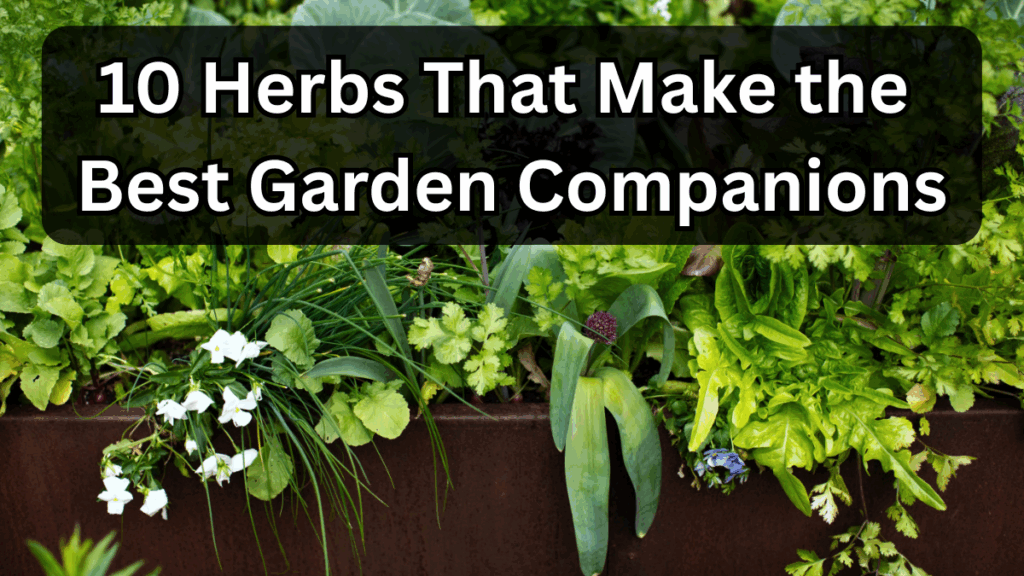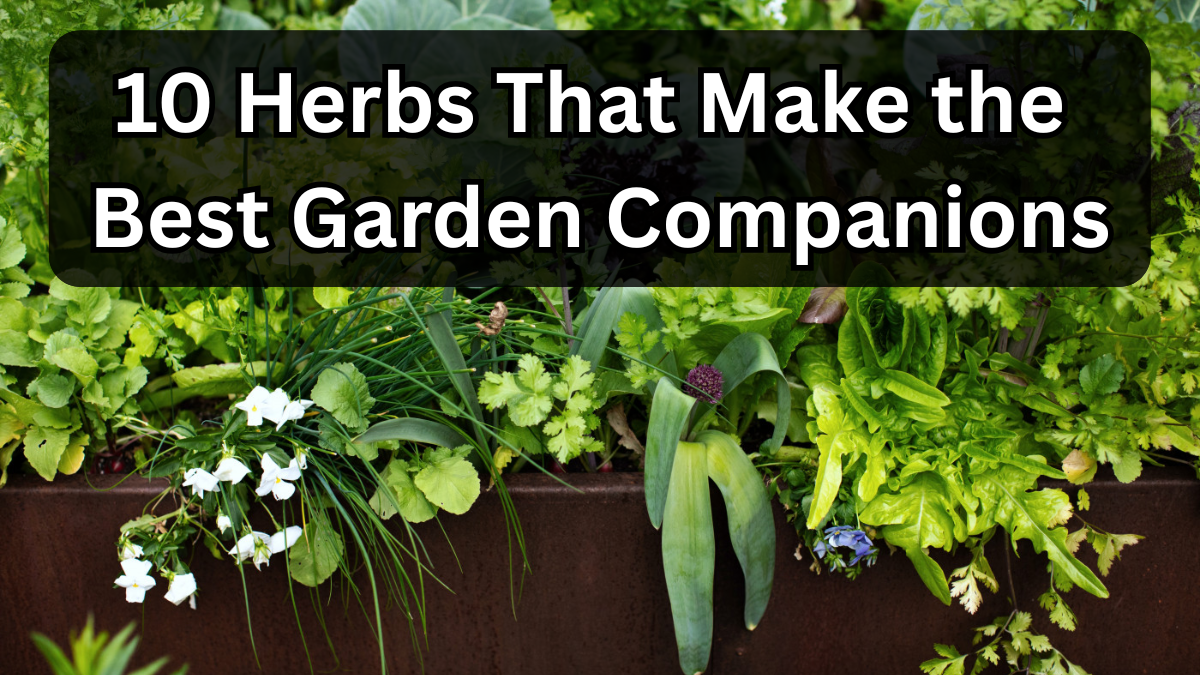Creating a thriving vegetable garden isn’t just about planting your favorite veggies—it’s also about smartly pairing them with herbs that can boost growth, repel pests, and enhance flavor. Herbs are not only aromatic and useful in the kitchen but also make excellent companion plants. Let’s explore the best herbs that act as your vegetable garden’s natural allies.

Why Herbs Are Great Companion Plants
Using herbs companion plants in your vegetable garden can offer numerous benefits:
-
Pest control – Many herbs naturally repel harmful insects.
-
Improved growth – Some herbs enhance the flavor and growth of nearby vegetables.
-
Attract pollinators – Flowers from herbs can attract bees and other beneficial insects.
-
Space efficiency – Herbs often require little space, making them perfect for intercropping.
Top 10 Herbs for Your Vegetable Garden
Here’s a detailed guide to the best herbs you can grow alongside vegetables:
| Herb | Best Companion Vegetables | Benefits |
|---|---|---|
| Basil | Tomatoes, Peppers | Improves flavor and repels aphids, mosquitoes, and tomato hornworms |
| Chives | Carrots, Tomatoes | Deters aphids, improves carrot growth, and enhances tomato taste |
| Cilantro (Coriander) | Spinach, Lettuce | Repels aphids and spider mites, attracts beneficial insects |
| Dill | Cabbage, Onions | Attracts predatory insects, deters cabbage worms |
| Mint | Cabbage, Tomatoes (in pots) | Repels ants, aphids, and flea beetles; grows aggressively, so container planting is recommended |
| Parsley | Asparagus, Tomatoes | Attracts predatory insects and improves the growth of tomatoes |
| Rosemary | Beans, Carrots, Cabbage | Repels carrot flies, bean beetles, and cabbage moths |
| Sage | Brassicas (Cabbage, Kale) | Repels cabbage moths and beetles, strengthens neighboring plants |
| Thyme | Tomatoes, Cabbage | Repels cabbage worms and whiteflies, improves flavor of tomatoes |
| Oregano | Peppers, Tomatoes | Repels pests, attracts pollinators, improves soil health |
Tips for Using Herbs as Companion Plants
-
Mix and match carefully – Avoid planting herbs that compete for the same nutrients.
-
Container planting – Herbs like mint can take over your garden if planted directly in soil. Use pots for control.
-
Rotation and diversity – Rotate your vegetables and herbs each season to maintain soil health.
-
Harvest regularly – Frequent harvesting encourages growth and keeps plants healthy.
Benefits of Companion Planting in Your Vegetable Garden
Integrating herbs companion plants with vegetables creates a more resilient, low-maintenance garden. Some key advantages include:
-
Fewer chemicals – Naturally repel pests instead of using pesticides.
-
Enhanced flavors – Many herbs improve the taste of vegetables when grown nearby.
-
Biodiversity – Supports a healthier ecosystem with beneficial insects and pollinators.
FAQs
1. Can I plant herbs and vegetables together in small spaces?
Yes! Herbs are perfect for container gardening or small raised beds. Planting herbs like basil or chives alongside tomatoes or peppers saves space and enhances growth.
2. Which herbs are best for repelling pests naturally?
Herbs like basil, rosemary, mint, and thyme are excellent for deterring pests without harming your plants.
3. Can all herbs be grown together with vegetables?
While most herbs work well as companion plants, avoid planting aggressively spreading herbs like mint directly in the soil with other vegetables.
4. How often should I harvest herbs in a vegetable garden?
Harvest regularly to encourage new growth. Pinch or cut leaves every few weeks, depending on the herb and growing conditions.
Click here to learn more
